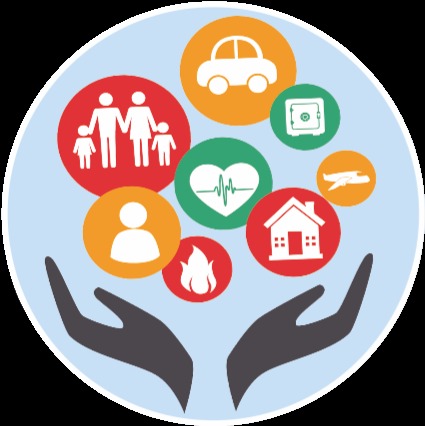Entertainment
Easy Steps on How to Become an Insurance Agent in 2023
Starting a career in the insurance industry is likely to be a thrilling prospect for both new and experienced professionals.
It is a career path that allows for flexibility and a diverse roster of exciting clients, depending on the area of specialization.
In this article, we will look at how to become an insurance agent in 2023.
Insurance agents have different state-specific requirements, but they can be completed much faster than other license-required careers.
If you’re ready to start selling insurance, consider following the steps outlined in this article to become an insurance agent.
What is an insurance agent?
An insurance agent is a person who works for an insurance company and promotes and markets the company’s insurance products.
Working with an agent is essential because they only sell insurance products from one company and are typically unable and unwilling to compare prices and features of other products on the market.
Agents should be distinguished from brokers (or insurance brokers), who are unable to compare products from multiple insurance companies.
Must Read: Easy Guide on How to Become a Pilot for an Airline
What Is the Role of an Insurance Agent?
An insurance agent’s job is to sell insurance policies.
Agents are responsible for developing marketing campaigns to sell various insurance products, assessing the needs of businesses and individuals, recommending insurance plans that meet those needs, and cultivating connections to expand their clientele.
Most insurance agents specialize in one or more insurance categories, such as health, property, disability, casualty, or long-term care.
Many insurance agents supplement their income by offering financial planning and management services to customers who are preparing for retirement or who want to set up investment or pension plans.
An insurance agent may perform the following functions:
- Aids in the promotion and sale of insurance products and services to customers.
- Giving clients sound financial advice and customer service
- Deals with not only individuals but also their families and corporations.
- Increases public awareness of the markets.
- Creates marketing strategies on a regular basis while keeping the preferences of clients in mind.
- Exercises in public relations (PR) are given special consideration.
- Follows business development strategies.
- Sell non-life insurance policies such as general insurance, casualty insurance, health insurance, disability insurance, long-term care
- insurance, burglary insurance, and so on.
- Sell other financial products such as variable annuities, mutual funds, and securities.
How Do Insurance Agents Get Paid?
An insurance agent typically earns money through commissions. It is the most common method of payment for insurance brokers.
The commission rate is determined by the type and volume of insurance sold; whether a new policy or a renewal affects the commission in another way.
The majority of real estate agents sell houses, automobiles, and life and health insurance. Insurance companies pay agents a percentage of premiums and renewals for selling home and auto insurance.
Life and health insurance policies, on the other hand, yield a higher percentage of the sale when a client first signs up.
Renewals can also pay less than new policies for agents.
However, there are other ways to make money.
It varies depending on the insurance company for which an agent works.
These models include the following elements:
- Only a salary and commission are paid.
- only a commission plus a bonus
When an agency meets a profit target, some companies offer bonuses as an incentive.
Trending: Complete Guide How to Become a Digital Nomad
How Much Do Insurance Agents Make?
According to the Bureau of Labor Statistics, an insurance agent can earn more than $100,000 in their first year (BLS).
The average annual salary for insurance sales agents was $52,180 in May 2020.
The bottom 10% of earners in the industry earned less than $29,000, while the top 10% earned more than $127,840.
One of the primary factors influencing the disparity in insurance agent pay is commissions.
This is true because the better a salesperson you are, the more money you will make. However, other factors influence how much money an insurance agent makes.
Why Is a License Required for Insurance Agents?
Insurance agents must be licensed in order to discuss or sell insurance products.
The requirements for a license vary by state. Operating without a license may result in penalties or legal action.
What is the average time it takes to become an insurance agent?
Most people can become insurance agents in a matter of weeks.
The speed with which you can obtain a license depends on your ability to complete an online course that requires specific study hours.
After your test and background checks are completed, you may have to wait a week or two before receiving your license.
How to Work as an Insurance Agent
These include the following procedures:
1. Choose the type of insurance agent you want to be.
When launching your agency, you must choose between captive and independent insurance agents.
- A captive insurance agent represents only one company, usually a large national insurer. The captive business provides assistance and training to the agent. In exchange, the agent is prohibited from selling insurance to competitors and must only promote the company’s products. Many captive insurance agents are required to sign non-compete agreements, which prohibit them from working for more than one insurer for a set period of time. Commission rates may be reduced based on the marketing assistance provided by the carrier to the agent.
- An independent insurance agent works with more than one insurance company. The agent obtains quotes from various companies in order to find the best policies and prices for the client. Independent agents provide a broader range of products, but they receive less training and assistance from their insurance companies. Being an independent insurance agent is more difficult because agents must build their brand in the areas where they operate rather than relying on marketing assistance from well-known insurers.
2. Determine which insurance products you want to sell.
Commercial insurance and personal insurance plans are available in a variety of configurations.
Commercial insurance brokers provide protection for businesses through a variety of products such as general liability, commercial property, and errors and omissions coverage.
Personal insurance is designed to protect individuals and families. This includes life insurance, home insurance, and car insurance.
3. Research your state’s licensing requirements.
Before you get licensed, you must decide which products you will sell so that you can select the appropriate license for your insurance agent business.
The name of your license will differ depending on the state you live in.
The following are the most common license types:
- Agents who want to help clients with business, home, and auto insurance must have a property and casualty license.
- Agents who want to help people who need insurance for life events, such as life insurance, accident insurance, or health insurance, should obtain a health, life, and accident license.
Depending on your job objectives, you may need to obtain a variety of licenses. The information will need to be provided by the organization you wish to represent or your state’s licensing office.
4. Pass the insurance licensing examination.
In most states, you must successfully complete a pre-licensing course.
Many of these can be learned online or in person. Depending on the state, training requirements could range from a one-day workshop to 20-40 hours of online training.
Before you can schedule your formal licensure exam, you must first meet your state’s pre-exam requirements.
These tests are frequently proctored by an independent company.
To take the online exam, you must be present at a testing location at the specified time and day.
You must have documentation of your training course completion before taking the exam.
The exam procedure is usually straightforward, especially if you have completed all pre-exam requirements and are well-prepared.
When you arrive at the appointed time, you will be seated at a computer.
See Also: Complete Guide on How to Become Google Partner
The majority of exam questions are multiple-choice. When the test is finished, you will know right away if you passed or failed.
If you do not pass the exam the first time, you can schedule and retake it as many times as you need.
5. Send in your background check and licensing application
You will submit the necessary licensing applications to your state’s office once you pass the insurance license test.
Some jobs may require a background check, which may include fingerprinting. Once you have your official license, you can legally discuss and sell insurance policies.
6. Schedule a sales meeting with an insurance company.
Before you can sell an insurance company’s products, they must appoint you.
Each insurance company to which you intend to sell products will require you to fill out an application and be appointed and given binding authority, which will be reflected on your state insurance license.
7. Find and maintain clients
You have a permit.
What comes next?
You’ll begin prospecting for clients. Many agents begin their careers by writing insurance and prospecting with family and friends.
This is a great way to get a feel for how the system works and to become comfortable quoting new coverage.
It is also a good idea to begin marketing for your agency.
You can investigate local advertising options, create a website, promote your business online, or join the local chamber of commerce.
8. Get insurance to protect your business.
As a new insurance agent, you also make certain that your company has business insurance to protect it. There are various types of insurance to consider:
General liability insurance will protect you in a variety of situations.
Assume a customer is injured while in your office; claims of physical harm are among the most common risks.
Even something as simple as tripping on the carpet has the potential for harm and legal action.
This coverage can be added to a business owner’s policy, along with commercial property insurance, at a discounted rate.
Errors and omissions insurance (E&O): Almost all insurance companies require E&O insurance before you can write their policies.
This protects your clients from any errors you or your staff may make.
How to Increase Clients for Your Insurance Company
Whether you have been selling insurance for years or have just started your insurance firm, you will need to bring in new business to generate revenue and replace customers who have canceled their policies.
Here are five practical methods for generating insurance leads and attracting new customers, which are outlined and thoroughly discussed below:
1. Identify your niche
Insurance agents may appeal to everyone at times, but specialist marketing is a more effective strategy for increasing insurance sales. You can benefit from concentrating your marketing efforts on a single business class by doing the following:
Develop a thorough understanding of the risks in a specific industry. Sometimes the dangers are obvious. However, as you gain experience in a particular field, your ability to assess risks grows.
Take advantage of a competitive advantage. Customers are more likely to choose an insurance agent who is knowledgeable in their field.
Raise your standard. Offering insurance coverage at a reasonable price is a great way to establish yourself as the industry’s go-to agent.
Complete the recommendations. As your reputation grows, more clients may bring you new leads.
Before deciding on a specialty, research the typical business types in your area. Join trade groups, read industry periodicals, and focus your networking efforts on people in that sector to stay informed on critical issues.
2. Participate in community networking
As you are probably aware, finding new clients necessitates networking.
Attending frequently occurring events, on the other hand, may put you in front of the same crowd.
Attend events outside of the insurance industry to meet new clients and shake things up a little bit, such as:
- Group gatherings
- Trade fairs
- Local happenings
- School board meetings
- Activities for charity
- Business gatherings
- Every day, prospective
Nobody expects you to spend half the day looking for new clients.
Prospecting is critical to the success of your agency.
Set aside an hour each day to read the local papers, particularly the business section and the engagement announcements.
Both may have sales potential.
Creating leads. Include email capture elements on your websites, such as a “Get a Quote” button or a newsletter subscription form.
Sending a cold email to company owners. Cold emailing is an excellent way to connect with potential customers.
Obtain more business cards. Give new clients business cards and ask current clients to tell other potential customers where they can find you and how to contact you.
Utilize lead generation. Make sure your current customers, friends, and family are aware of the insurance products and services you offer.
To increase your return on prospecting, pay attention to potential customers’ concerns and doubts.
Prepare a brief explanation of why they need insurance and how it will benefit them financially.
3. Grow your leads
Every pitch should result in a sale, which is uncommon in the insurance industry generating leads is just as important as nurturing them.
Create a strategy for promoting your agency’s value to their business while keeping it at the forefront of their minds.
You could do the following:
- Create posts that demonstrate your understanding of annuities, life insurance, health insurance, and other insurance requirements.
- Create brief instructional videos that explain various policies.
- Provide webinars that demonstrate how insurance can alleviate their concerns.
- Send out frequent emails with risk management advice.
- Connect with your insurance clients on social media platforms such as LinkedIn and share informative articles to expand your client base and raise awareness of your insurance agency.
Consider email marketing’s effectiveness.
If you send out a newsletter with helpful hints and recommendations, sales should increase quickly. It also conveys professionalism and aids in the development of trust.
Conclusion
The insurance industry offers excellent earning potential.
Many insurance sales agents are paid on commission, and the earning potential is substantial.
Your earning potential is determined by your hard work and willingness to put yourself out there in order to create and build relationships with prospective clients and sell insurance products.
Join our 77,000+ students and never miss our members’ exclusive Jobs Abroad and Scholarship updates.
Gain Access to our Private Group
See what others are reading:
- Complete Guide on How to Become Power of Attorney
- Complete Guide: Easy Steps on How to Become A LLC
- Complete Guide: Easy Steps on How to Become AARP Member



















